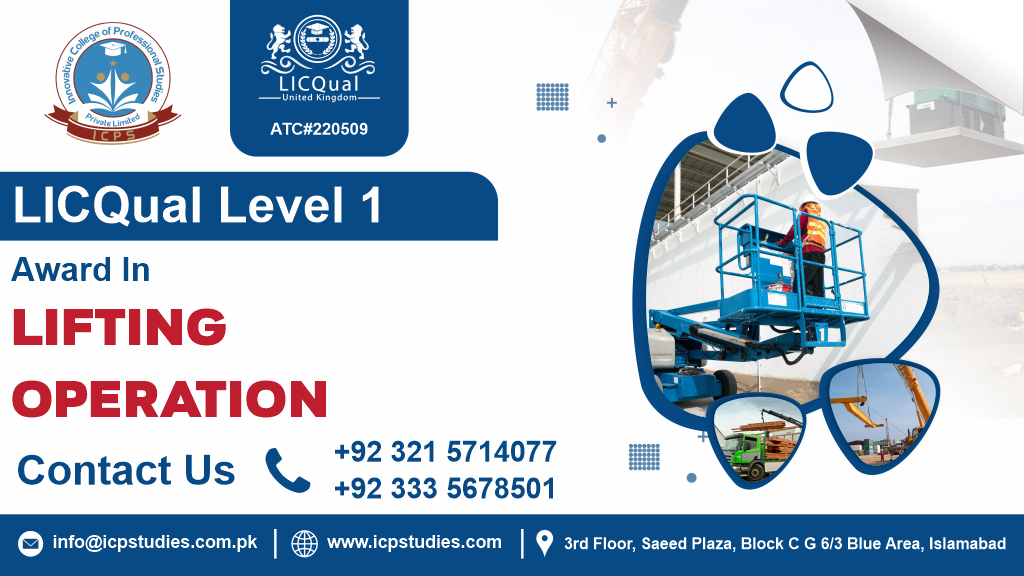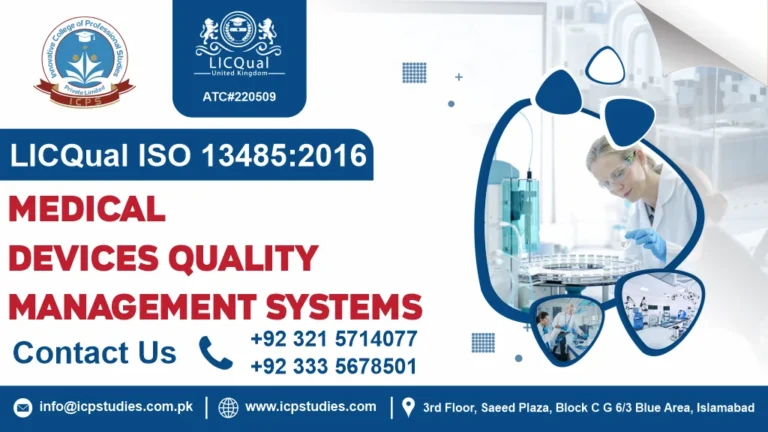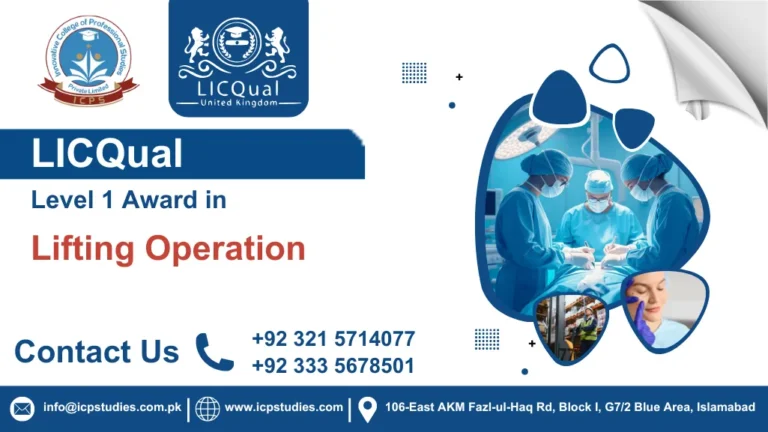In industries where heavy lifting is an everyday occurrence, safety and efficiency are paramount. Whether it’s construction, manufacturing, or logistics, having the right skills and knowledge can make all the difference in preventing accidents and optimizing operations. This is where the LICQual Level 1 Award in Lifting Operation comes into play, offering a comprehensive training program designed to equip individuals with the essential skills needed to excel in lifting operations.
The LICQual Level 1 Award in Lifting Operation is a foundational course that provides participants with a solid understanding of safe lifting practices and procedures. Through a combination of theoretical knowledge and practical training, participants learn how to operate lifting equipment safely, assess risks, and communicate effectively during lifting operations.
LICQual Level 1 Award in Lifting Operation provides participants with the knowledge, skills, and certification needed to excel in the challenging and dynamic field of lifting operations. Whether you’re just starting your career or looking to advance to the next level, this course is your gateway to success in the world of safe and efficient lifting.
All About LICQual in Level 1 Award in Lifting Operation
Course Overview
The “Award in Fire and Hazardous Materials Incident Investigation” is a specialized training program designed to equip individuals with the knowledge and skills necessary to effectively investigate fire and hazardous materials incidents. This award aims to enhance the capabilities of professionals working in emergency response, fire safety, environmental protection, and related fields by providing them with comprehensive training in incident investigation techniques.
The “Award in Fire and Hazardous Materials Incident Investigation” provides valuable training for professionals involved in emergency response, fire safety, and environmental protection. By equipping participants with the knowledge and skills to effectively investigate incidents involving fire and hazardous materials, this award contributes to enhancing public safety, protecting the environment, and reducing the risks associated with such incidents.
Study Units
To enroll in the LICQual Level 1 Award in Lifting Operation, candidates should meet the following entry requirements:
- No Formal Prerequisites: There are no specific prerequisites, making the course accessible to all interested individuals.
- Basic Understanding of Lifting Operations: Familiarity with lifting equipment and basic operational concepts is beneficial but not mandatory.
- Age Requirement: Participants must be at least 14 years old.
- Language Proficiency: Candidates should have a good understanding of the language of instruction to effectively comprehend course materials.
- Commitment to Learning: A willingness to engage with the course content and apply knowledge of lifting operations.
These requirements ensure that candidates are prepared to participate effectively in the course and gain essential skills and knowledge in lifting operations.
4o mini
The LICQual Level 1 Award in Lifting Operation course is designed for:
- New Operators: Individuals starting their careers in lifting operations who need foundational skills.
- Construction Workers: Those in the construction industry seeking to understand basic lifting procedures.
- Apprentices: Learners undergoing training in relevant fields wanting to enhance their knowledge of lifting operations.
- Site Operatives: Employees involved in lifting tasks who wish to develop a basic understanding of safe practices.
- Health and Safety Enthusiasts: Individuals interested in learning about safe lifting operations.
This course is ideal for anyone looking to establish essential skills in lifting operations to ensure safety in various work environments.
Learning Outcomes
- Firefighters and Emergency Responders: Firefighters and emergency response personnel benefit from this course as it equips them with essential skills to investigate fire incidents effectively, understand fire behavior, and enhance their overall knowledge of fire safety protocols.
- Health and Safety Professionals: Health and safety professionals responsible for ensuring workplace safety and compliance can benefit from this course by gaining insights into fire incident investigation techniques and lifting operation safety measures. They can apply this knowledge to assess risks, develop safety protocols, and prevent incidents in their respective workplaces.
- Construction and Manufacturing Workers: Individuals working in construction, manufacturing, and related industries regularly encounter lifting operations as part of their job responsibilities. This course provides them with the necessary training to conduct lifting operations safely, minimize risks, and adhere to health and safety regulations.
- Logistics and Warehouse Personnel: Professionals involved in logistics, warehousing, and distribution activities often engage in lifting operations while handling goods and materials. This course helps them understand safe lifting techniques, equipment usage, and risk mitigation strategies to prevent injuries and ensure efficient operations.
- Environmental Protection Specialists: Environmental protection specialists tasked with managing hazardous materials and responding to environmental incidents can benefit from the fire incident investigation component of the course. It equips them with the knowledge and skills to investigate incidents involving hazardous materials and mitigate environmental risks effectively.
- Risk Management Personnel: Risk management professionals responsible for assessing and mitigating risks in various industries find value in this course as it enhances their understanding of fire safety principles, lifting operation hazards, and incident investigation methodologies. They can apply this knowledge to develop comprehensive risk management strategies for their organizations.
- Students and Career Changers: Students pursuing careers in fields related to fire safety, emergency management, occupational health and safety, or environmental protection can benefit from this course as it provides them with foundational knowledge and skills essential for entry-level positions in these industries.
In summary, this course caters to a wide audience of professionals seeking to enhance their expertise in fire incident investigation and lifting operations, regardless of their specific roles or industries. It offers valuable training and certification that can contribute to improved workplace safety, compliance with regulations, and career advancement opportunities.
FAQs about LICQual in Level 1 Award in Lifting Operation







